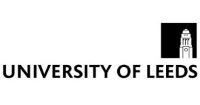White Rose BBSRC Doctoral Training Partnership (DTP) Professional Internships for PhD Students (PIPS)
 Who are we?
Who are we?We are the White Rose Doctoral Training Partnership (DTP) in Mechanistic Biology, which brings together the research of the world-class molecular and cellular bioscience centres at the White Rose universities of Leeds, Sheffield and York. The collaboration has attracted three major investments from the Biotechnology and Biological Sciences Research Council (BBSRC) which, together with additional investment from the partner universities, is currently supporting 200 PhD studentships.
What is a PIPS?
The Professional Internship for PhD Students (PIPS) is a 3-month placement and is a key component of our Doctoral Training Partnership (DTP) programme. The aim of PIPS is to allow students to gain the opportunity to carry out a non-academic work experience placement during their PhD. Such experience is important both to help early career researchers understand the context of their research and to expose them to the range of opportunities available to them after they graduate. We are conscious that our students go onto to a range of academic and non-academic related careers. It is therefore important that PIPS placement helps the students to develop transferable work-related skills.
We have placed a large number of students with host organisations over the course of the DTP and have received very favourable feedback from both the students and their hosts. Many of these organisations have gone on to host multiple placements. Previous PIPS hosts:
https://www.whiterose-mechanisticbiology-dtp.ac.uk/previous-pips-hosts/
How are PIPS organised?
The PIPS process is student-led i.e. the students organise and plan their own, individual PIPS, with support from their University PIPS Contact. They are encouraged to find their own placements, either from organisations that have previously been PIPS hosts or those who are new to the PIPS programme. Students are usually in years 2 or 3 of their 4-year PhD programme when they undertake their PIPS.
The White Rose DTP is interested in hearing from organisations from any employment sector – including industry, business, education, media, governmental and voluntary sector organisations/charities – who would be able to offer PIPS opportunities to our high calibre students.
What are the benefits to the host organisation?
The benefits of the PIPS scheme to the organisation hosting the student include:
- Access to highly motivated students, who have graduated from high ranking universities
- Establishing, maintaining or developing collaborations with academic partners
- Developing links with specific research areas, including bringing the expertise and experience of research trained individuals to policy analysis and development
- Working with a highly skilled individual on projects that might not otherwise be undertaken, such as a short research or business development project
- Providing staff with experience of line management over a short, defined period
- Renewing the enthusiasm of staff (e.g. teachers, policy makers, project managers)
What types of internships are suitable?
All placements are required to be:
- Unrelated to the student’s PhD research project
- Outside of academia – Research roles in academia or research institutes are not generally appropriate, even in an area unrelated to the student’s PhD project. However, if you are able to offer a sufficiently differentiated experience for the student and they would also develop non-lab skills (i.e. a wider range of transferable, work-related skills) then this may be considered.
- At an appropriate level to challenge a talented PhD student
PIPS are discrete projects, which are well-planned to be suitable for high calibre PhD students. The following are common PIPS experiences, although this list is not exhaustive and we encourage students to explore PIPS in a wide range of fields:
- A well-defined desk-based research project
- Review or analysis of manufacturing, processing or production techniques
- Marketing, publishing or sales
- Business development or project management
- Legal offices
- Internal audit or consultancy
- Teaching – in schools, using the Researchers in Residence scheme 1, or through other mechanisms
- Policy – developing policy or working in a related setting, such as a government department, local authority, non-departmental public body, professional association, charity, research funder or medical organisation (such as NHS Primary Care Trust)
- Media, e.g. press office, science publishing company, public organisation
How long are the internships?
Placements are 3 months in duration. This is to ensure that the placement provides adequate experience outside the research project environment. PIPS are usually undertaken by students towards the end of Year 2 or the beginning of Year 3 during their 4-year PhD project, in order to minimise the interruption to their research.
The internship may be taken either in one three-month block, a number of shorter blocks or as a part-time placement over a longer period. This will depend on the preferences of the student and host organisation, as well as the type of internship. Internships could be hosted by more than one host organisation if this is considered appropriate.
How are PIPS funded?
The students continue to receive their BBSRC-funded maintenance stipend throughout their placement, and therefore do not require a salary. The idea of the PIPs scheme is that it is mutually beneficial; the student gains valuable new skills and the organisation gains an extra resource to carry out a meaningful piece of work.
In addition, each student receives an allowance of up to £1,000 to cover the costs of travel and accommodation. In some instances, the expenses are more than the allowance. In this case, we would ask host organisations to make a contribution if they are in a position to do so.
Is there a lot of paperwork involved?
Becoming a host organisation is a simple process. A straightforward Memorandum of Understanding (MOU) is put in place prior to the student starting their placement. This enables all parties to have a clear understanding of the activities or project on which the student will be working and facilitates the most positive outcome for all parties. The MOU should be negotiated between the host organisation and the student to ensure the maximum benefits to both.
PIPS hosts are also required to complete a Health and Safety checklist before each placement commences. At the end of the placement, we ask hosts to give feedback on the student’s progress.
Document templates can be downloaded from the PIPS Paperwork page on the DTP website:
https://www.whiterose-mechanisticbiology-dtp.ac.uk/pips/pips-paperwork/
How can I get involved as a PIPS host?
You may already have had an enquiry from an individual student and are considering a one-off placement. Alternatively, we are happy to advertise new PIPS opportunities across the whole cohort of eligible students – see the latest PIPS opportunities on the right-hand side of each page on our website: https://www.whiterose-mechanisticbiology-dtp.ac.uk/
If you wish to submit a PIPS opportunity for advertising, please use the following guide.
Content of a PIPS advert
It would be helpful if you cover the following information. Feel free to use these headings or group the information in a way that suits you.
1. Pips title
This is effectively the job title.
2. About us
A brief description of what your organisation does, your vision and mission, etc.
3. Website link
Include a link to your company website and to any other key information.
4. What you will do
Our students are highly capable and the work must be suitable for students at PhD level.
Give the background to the project that the student will be working on e.g. is it part of a wider
project? Describe what they will actually do whilst they are with you. A specific, time-bound project outline is ideal, with a clear remit and outputs and outcomes that can be achieved and evidenced within the 3-month period. If you get this section of the advert right in terms of outcomes and outputs for you as a company and for the student, you should be able to pretty much copy and paste into the Memorandum of Understanding (MOU), subject to any modifications that have happened as a result of discussions with a specific candidate.
5. Benefits to the student
Describe the skills and experience that the student will have gained by the end of the placement, including skills specific to the PIPS project, industry-based skills and wider, work-related skills.
6. Benefits to the company
Describe what the company will gain as a result of this placement e.g. how will the student’s work contribute to the future direction of the company’s work?
7. Ideal candidate
Please bear in mind that PIPS must be unrelated to the student’s PhD project. One of the main
purpose of PIPS is to help the student develop their wider, work-related and transferable skills. This section is perhaps more about motivations and interests at this stage, rather than specific previous experience, as we encourage our students to try something completely different / out of their comfort zone for their PIPS. Having said this, you are operating in a specific field so feel free to specify a particular type of background if you need to.
8. When
A PIPS placement is for 3 months. This is usually undertaken in a solid block, although there is
flexibility and this can be split in different ways. You can say, for example, that you would like the placement to start in Spring but that dates can be flexible and can be negotiated to suit both the PIPS guide for potential new hosts Page 3 of 4 student and the company. Or, for example, you could simply say anytime during the year. Entirely up to you.
Contact
If you require further information, or to submit your PIPS advert, please email the Doctoral Training Partnership Co-ordinator, Catherine Liddle at c.m.liddle@leeds.ac.uk
























